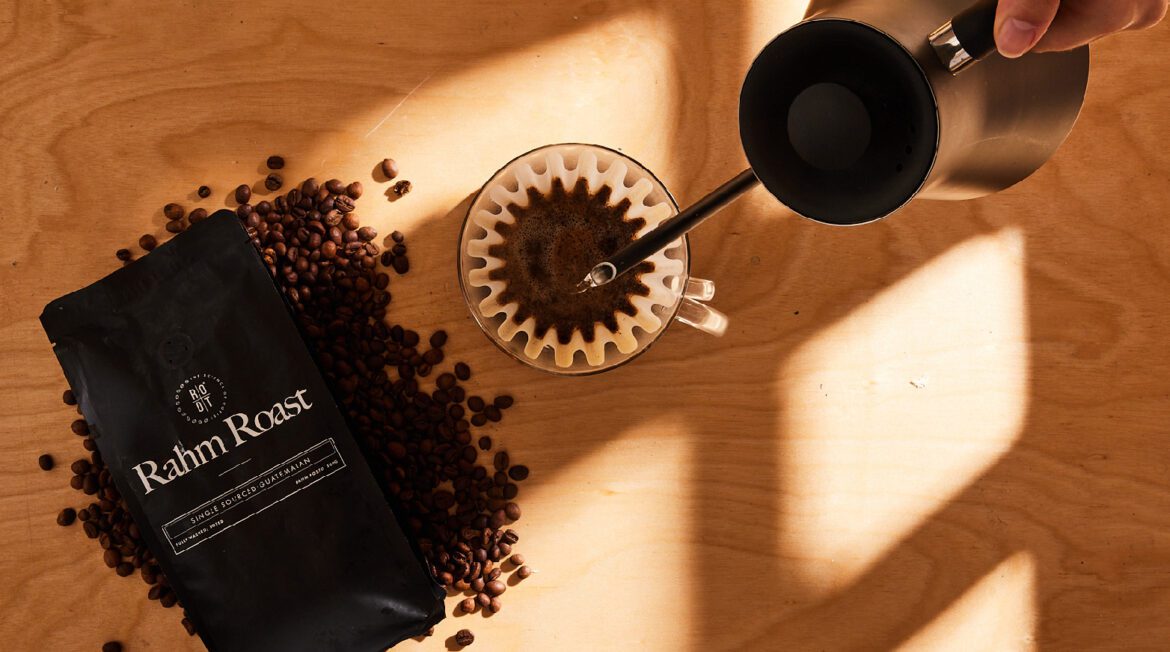In a world of Starbucks, Dunkin’ Donuts, and thousands of other coffee shops and barista-driven specialty cafés, coffee continues to be a part of our everyday lives. A warm drink – a simple early-riser concoction for my parents, thanks to Folgers and Maxwell House – is now a daily staple to keep us energized, focused and mentally driven to get through our day.
 When I was a child, I was told if I drank coffee, it would “stunt my growth,” so my sister, brother and I never considered it. In contrast, children today wait in the Starbucks line, behind their parents, ordering tall caramel macchiatos. I stayed away from coffee for years, though during college it became a habit in support of those late-night study sessions, and I am still a fan for my afternoon pick-me-up. According to Craft Coffee Spot, in the United States alone, the average coffee drinker consumes three cups per day, and the country consumes an average of 179 billion cups annually, with that number consistently increasing.
When I was a child, I was told if I drank coffee, it would “stunt my growth,” so my sister, brother and I never considered it. In contrast, children today wait in the Starbucks line, behind their parents, ordering tall caramel macchiatos. I stayed away from coffee for years, though during college it became a habit in support of those late-night study sessions, and I am still a fan for my afternoon pick-me-up. According to Craft Coffee Spot, in the United States alone, the average coffee drinker consumes three cups per day, and the country consumes an average of 179 billion cups annually, with that number consistently increasing.
Luckily, coffee is a rich source of antioxidants, which helps in preventing damage caused by free radicals (unstable atoms that can harm cells, causing illness and aging). Coffee also contains bioactive compounds, including caffeine, chlorogenic acid, and trigonelline (important quality indicators of coffee), which have shown promising results in improving brain function and reducing the risk of neurodegenerative diseases. Coffee increases dopamine and norepinephrine, two neurotransmitters known to boost alertness, mood, and physical performance. Coffee may lower the risk of type 2 diabetes, as well as reduce inflammation and improve insulin sensitivity. The drink produces a protective effect on the liver, reducing the risk of liver diseases such as cirrhosis and liver cancer. It also reduces the risk of colorectal and prostate cancer due to its antioxidant and anti-inflammatory properties. Research conducted in 2018 showed drinking coffee regularly could reduce cardiovascular disease and stroke. Coffee, in its pure form, can be considered healthy if expansive amounts of sugar, heavy creams and/or other flavor enhancers are not added.
In our wellness-driven world, we consistently read or hear about the ingredients in most items we consume, whether it be foods, sweets, soft drinks, juices, and even alcohol; but what we do not hear about is what’s in our daily cup of joe. Like processed foods, the unhealthy details are often in the fine print. Just as with coffee products, unhealthy or hidden characteristics are simply unknown. Concerning? I would think so, seeing this is a drink, which according to the National Institutes of Health (NIH), an estimated 154 million adults, or 75 percent of the U.S. population consume daily.
So, what is in our cup of coffee each morning? It all depends on how the beans are processed. Most coffee beans go through natural drying process in the sun, then are washed once, or even half-washed (wet method) or semi-washed (honey, pulped, natural). Milling, roasting, and grinding the coffee beans subsequently come into play.
While there are a myriad of health benefits to drinking coffee, there can also be drawbacks to conventionally grown coffees. According to Natural Force, numerous commercial coffees contain health-harming contaminants like mycotoxins (toxic substances produced by fungus), ochratoxin A (a mycotoxin produced by fungal species), and acrylamide (a chemical that can form during high-temperature processes, including roasting coffee beans). Additional contaminants can include polycyclic aromatic hydrocarbons (a chemical that occurs naturally in coal, crude oil, and gasoline), and of course pesticides, herbicides, fungicides (used to kill insects, plants and weeds), along with mold, bacteria, fungus, and parasites that can not only cause short-term symptoms like fatigue, weakness, and brain fog, but can lead to long-term health consequences.
Conventional coffee is among the most heavily chemically treated foods in the world. In fact, only 3 percent of the coffee available is grown using organic methods, which means 97 percent is not without all those potentially dangerous chemicals.
Fortunately, that 3 percent of healthy coffees available have a new specialty alternative on the market, one without damaging, health-harming properties.
Just launched, and one of my most recent scientific formulations, is Rahm Roast. Presented by DRC Ventures and available at The Root Brands, Rahm Roast is a boutique brand coffee formulation using proprietary trade secrets to extract toxins, bacteria, parasites, and fungus. Considered to be the first of its kind in the specialty coffee genre, Rahm Roast is made with coffee beans from an organic region of Guatemala, infused with patent-pending, proprietary Xoted Method Technologies.
Our Xoted method constitutes a multi-washing process designed to remove contaminants and heavy metals. By means of this methodology, the coffee beans are also sprayed with a detoxing formula to remove any additional harmful properties that the multi-washing did not remove. This complex process is designed to not only remove all unhealthy attributes, but it also leads to lower acidity and helps support the coffee’s original flavor and aroma.
In extensive coffee processing inspections, Rahm Roast had no detectable mycotoxins, a characteristic often found in commercially processed coffees. Further, this new coffee incorporates properties including bioavailable silica, a trace mineral complex, and vitamin C to guarantee the best possible flavor profile, including chocolate, nutty and caramel overtones.
I am so excited to introduce Rahm Roast as it furthers my initiative and vision to create a healthier, toxin-free environment to better enhance the health and wellness of us all. We hope Rahm Roast will become the popular choice for those wanting a toxin-free, healthy specialty coffee alternative.
For more information or to make a purchase, visit www.RahmRoast.com.

